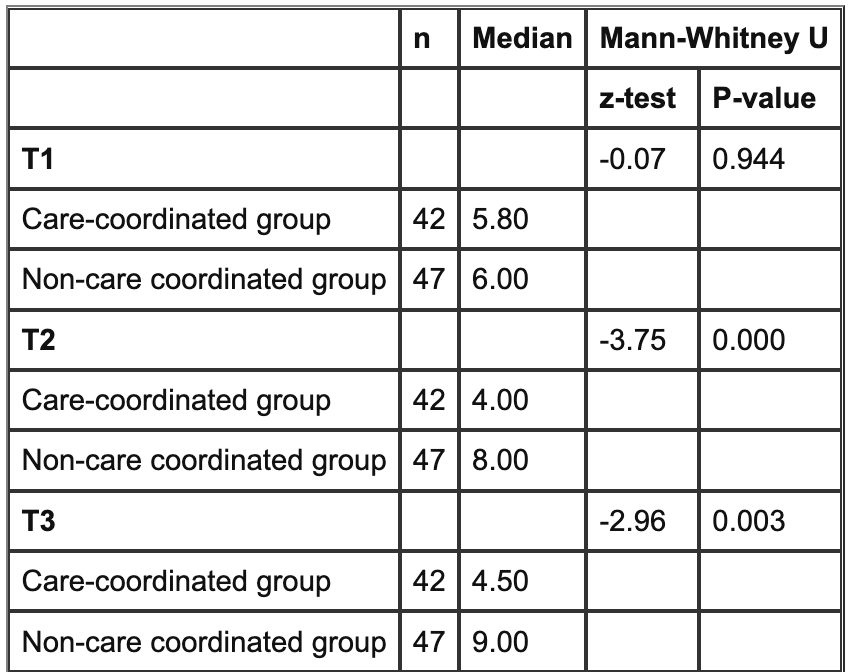Question
A study was conducted to determine whether adults with type 2 diabetes who participated in care coordination have more favorable clinical outcomes such as A1c
A study was conducted to determine whether adults with type 2 diabetes who participated in care coordination have more favorable clinical outcomes such as A1c compared to a group of diabetic patients who did not receive care coordination. A1c measures the average levels of blood glucose, an important health indicator for diabetic patients.
The study sample consisted of 89 diabetic patients of whom 47 were assigned to receive care from non-care coordination clinics, and another 42 diabetic patients who received care at care-coordinated practices. The participants' A1c levels were assessed at month 1 (time 1 or T1 when patients were enrolled in one of the two groups and the study began), then at 3 months (T2) and 6 months (T3). The results are presented in the Table below:

Step by Step Solution
There are 3 Steps involved in it
Step: 1

Get Instant Access to Expert-Tailored Solutions
See step-by-step solutions with expert insights and AI powered tools for academic success
Step: 2

Step: 3

Ace Your Homework with AI
Get the answers you need in no time with our AI-driven, step-by-step assistance
Get Started


